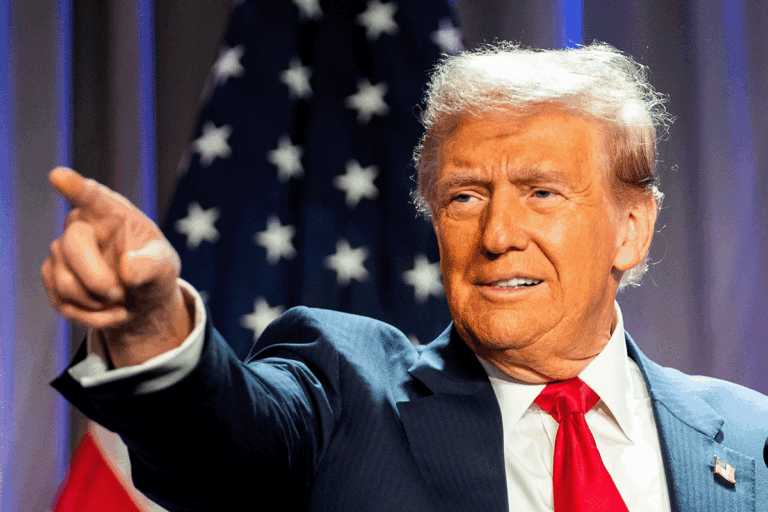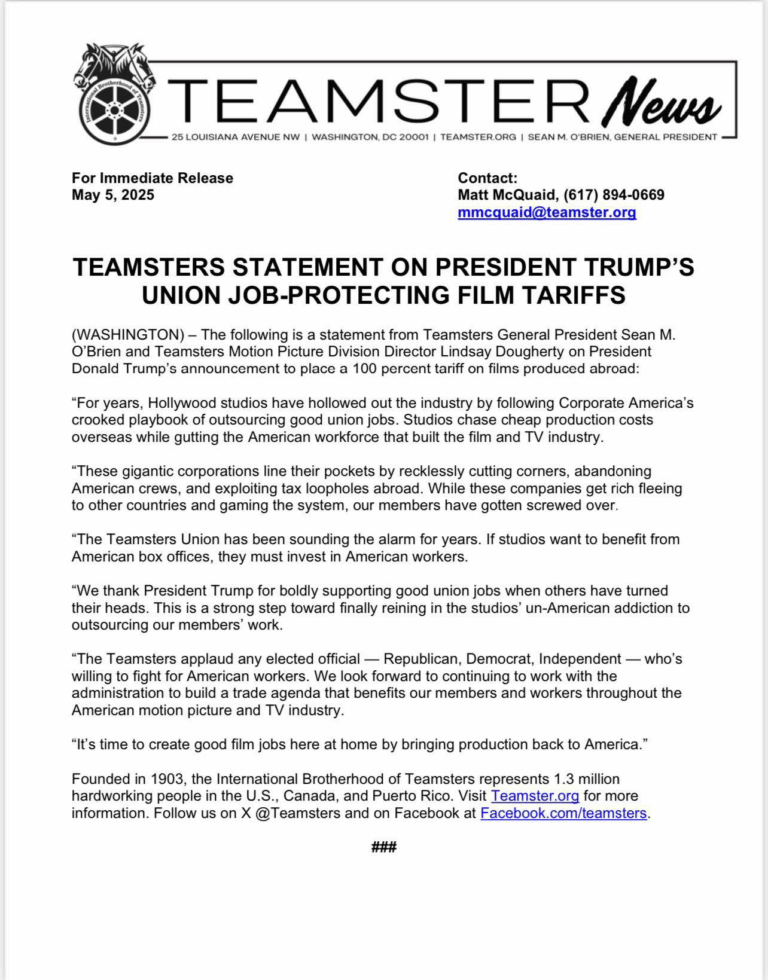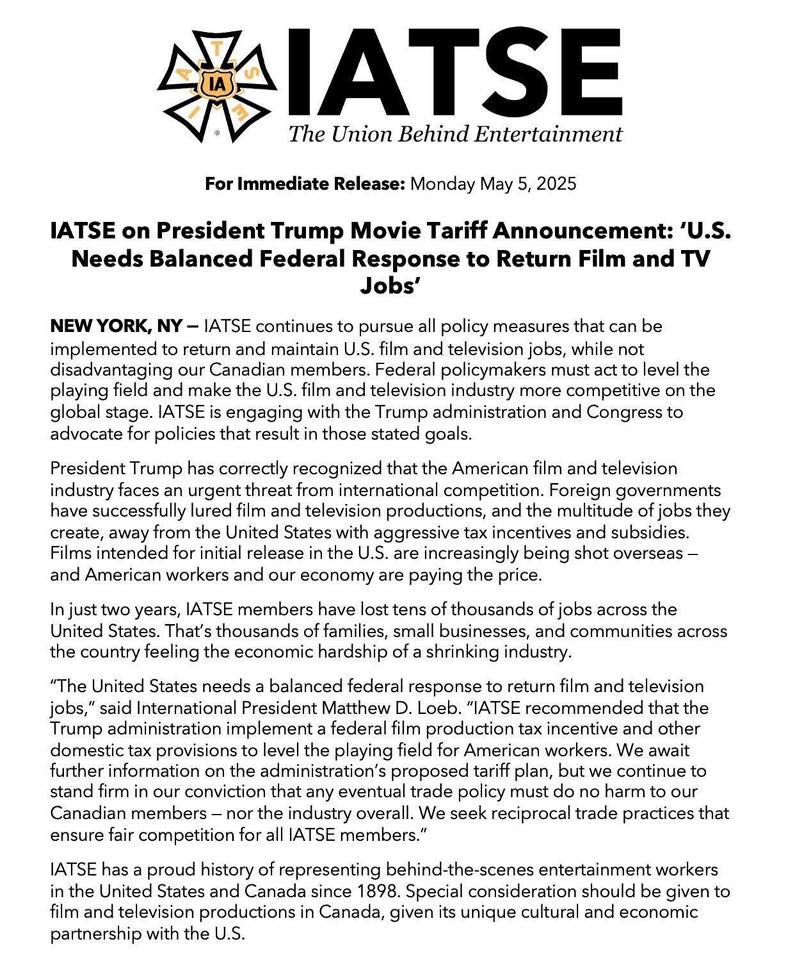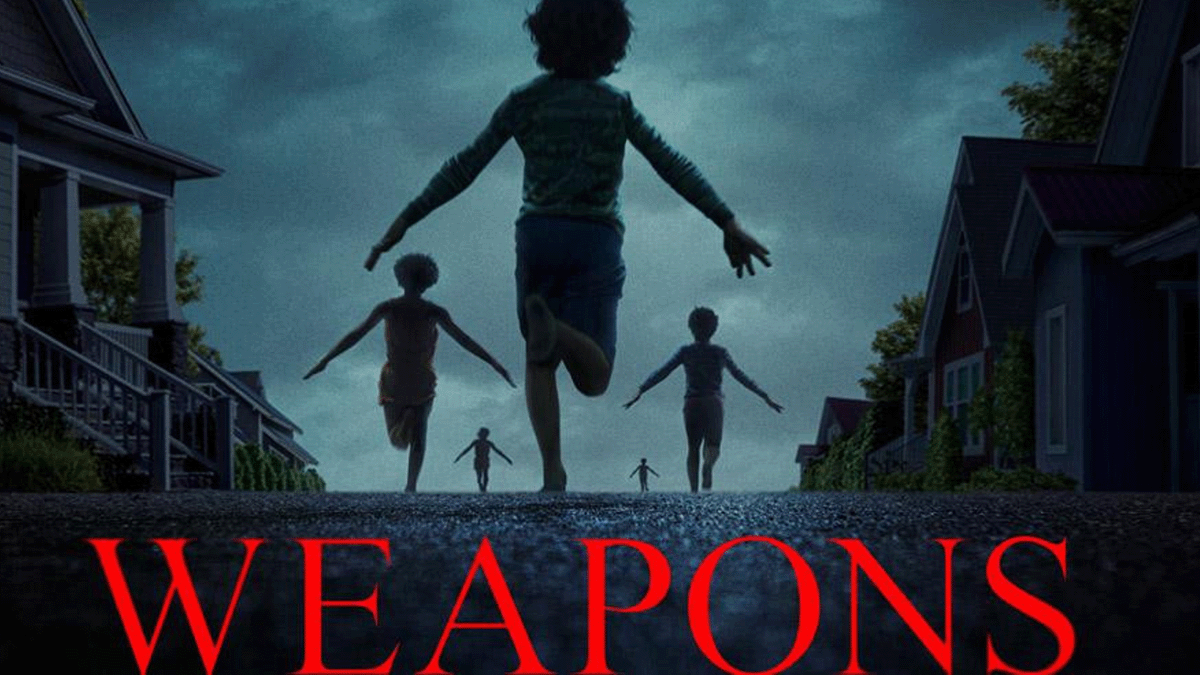Hollywood was caught off guard this week after President Donald Trump announced plans to impose a 100% tariff on all films produced outside the United States. The surprise move, made via Truth Social just days ahead of the Cannes Film Festival, aims to bring film production back to American soil — but it’s already creating confusion, market turbulence, and strong reactions from industry insiders and labor unions.

Trump’s Pitch: “Make Movies in America Again”
Trump framed his proposal as a response to what he called a “national security threat,” blaming foreign governments for luring American studios overseas with aggressive tax incentives and claiming that imported films push “messaging and propaganda.” In his words: “The Movie Industry in America is DYING a very fast death… WE WANT MOVIES MADE IN AMERICA, AGAIN!”
Trump’s announcement comes at a complicated time for the industry. While domestic box office numbers are rebounding — up nearly 16% over last year — film and TV production remains sluggish. In the wake of the 2023 writers’ and actors’ strikes, roughly 40% fewer projects have been shot in the U.S., and media companies continue cutting back on content.
Studios Scramble, Stocks Slide
Within hours of the announcement, top studio executives were holding emergency calls to assess the fallout. There’s significant uncertainty about whether the president can legally enforce such tariffs, how they’d be implemented, or whether they’d apply to films already shot or in production.
The timing couldn’t be worse. U.S. producers are heading to Cannes to pitch projects and secure international distribution — and now face questions from international partners about what the future holds. Meanwhile, studio stocks took a hit: Netflix dropped around 4%, Disney and Paramount slid more than 2%, Warner Bros. Discovery fell over 3%, and Comcast dipped about 1%.
Analysts are warning of deeper impacts. Wedbush Securities’ Alicia Reese noted that roughly 75% of Netflix’s content is produced overseas, often by third-party studios. “Large studios and distributors now carry a significant amount of risk,” she wrote in a note to investors.
Unions Weigh In: Strong Support from Teamsters, Caution from IATSE
The Teamsters Union threw its full support behind the tariff plan. In a joint statement, General President Sean M. O’Brien and Motion Picture Division Director Lindsay Dougherty blasted studios for outsourcing jobs and praised Trump for “boldly supporting good union jobs when others have turned their heads.”
“Studios chase cheap production costs overseas while gutting the American workforce that built the film and TV industry,” the statement read. “The Teamsters applaud any elected official — Republican, Democrat, Independent — who’s willing to fight for American workers.”

IATSE, which represents behind-the-scenes entertainment workers in both the U.S. and Canada, struck a more measured tone. While agreeing that the U.S. has lost tens of thousands of film and TV jobs due to foreign tax incentives, the union stopped short of endorsing tariffs. Instead, it called on federal policymakers to create competitive domestic tax incentives and warned against harming Canadian workers or disrupting long-standing U.S.-Canada industry partnerships.
“We await further information on the administration’s proposed tariff plan,” said IATSE President Matthew D. Loeb. “Any eventual trade policy must do no harm to our Canadian members — nor the industry overall.”

Enter Jon Voight (Yes, Really)

Actor Jon Voight, one of Trump’s recently named “special ambassadors” to Hollywood, may be playing a behind-the-scenes role in shaping the president’s thinking. Voight and his team recently met with Trump at Mar-a-Lago to present a formal plan to revive U.S.-based film and TV production. Their proposal includes tax incentives, infrastructure subsidies, job training programs, co-production treaties, and targeted tariffs.
“The president loves the entertainment business and this country, and he will help us make Hollywood great again,” said Voight.
The Bigger Picture
Lucasfilm and Disney’s The Mandolorian and Grogu shouldn’t be affected since filming was done primarily in California.
On the surface, if this move helps bring productions back to the U.S. it would certainly benefit Georgia which has seen it’s share of productions lost to Europe. Marvel has moved most of it’s latest productions to the U.K. which previously filmed many of their films and shows in Georgia.
Whether or not the proposed tariffs become policy, they’ve reignited a long-simmering conversation about how to keep Hollywood jobs in the U.S. And as the industry gathers in France for one of its biggest global showcases, there’s one question on everyone’s mind: what happens next?


